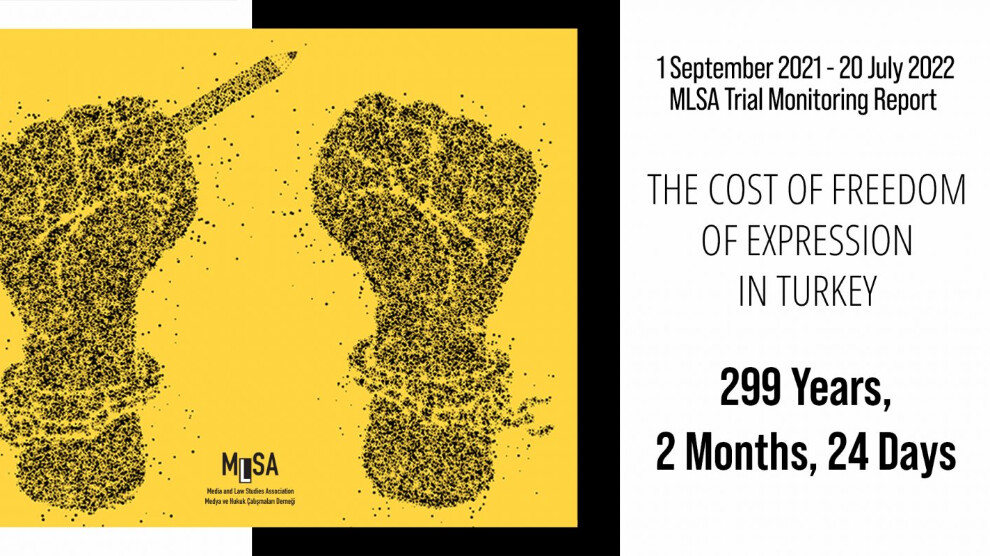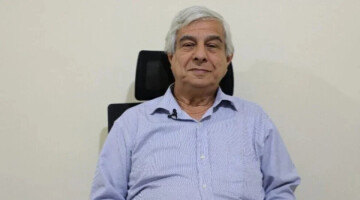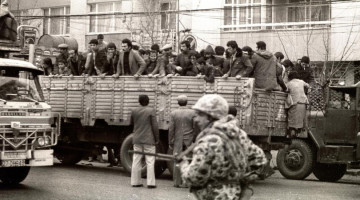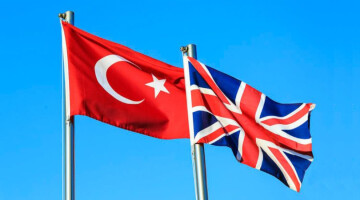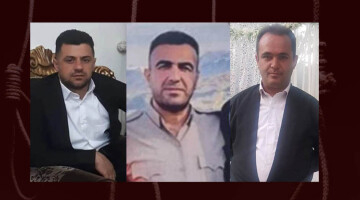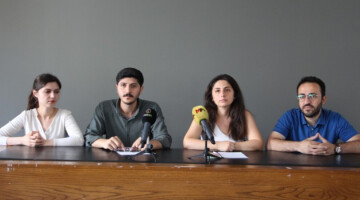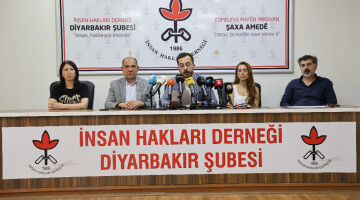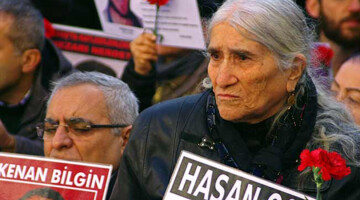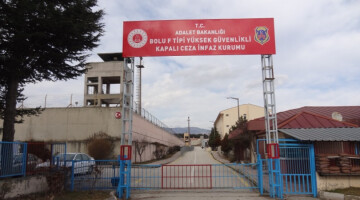The annual trial monitoring report of the Media and Law Studies Association (MLSA), which has been monitoring freedom of expression trials since 2018 and which currently has the biggest trial monitoring programme in Turkey, has been published. The report contains the data gathered through the monitoring of 446 hearings of 210 freedom of expression trials held in 23 different cities with the support of the Royal Norwegian Ministry of Foreign Affairs and the Turkey Office of the Friedrich Naumann Foundation for Freedom.
According to the report, journalists continued to be tried in terrorism cases in which their news articles and social media posts were cited as evidence for the charges. In the report, it is also stated that there is an increase in the lawsuits opened against those who had participated in peaceful demonstrations and protests. The report also highlights that prosecutors and first degree courts disregard the judgments of the Constitutional Court and the European Court of Human Rights (ECtHR). The report also draws attention to the radical increase recorded in the prison sentences imposed in freedom of expression trials.
The practice of trying journalists in terrorism cases continues
The report demonstrates that the practice of trying journalists in terrorism cases continued in the monitoring period. In the report, it is shared that the charge of “making propaganda for a terrorist organization” was leveled in 62 trials and, in total, 143 journalists appeared before the courts over this charge. In a similar fashion, it is also shared that in 38 out of 44 trials in which the charge of “membership in a terrorist organization” was leveled against the defendants, the defendants were journalists. In total, 132 journalists appeared before the courts over “propaganda” charges. According to the report, the news articles and the social media posts of journalists constituted the majority of the evidence cited in these cases.
Unlawful evidence cited in ‘insulting the president’ cases
In the report, it is stated that “insulting the president” cases targeted journalists the most. 34 people were tried in 29 “insulting the president” cases and 18 out of these 34 defendants were journalists.
It is highlighted that in 19 cases, the defendants’ social media posts were the only evidence cited for the charges. The report points out the fact that in 14 cases, social media posts were gathered via the so-called “virtual patrol” method, which the Constitutional Court ruled to be unconstitutional in its judgment on 19 February 2020 and thereby revoked the relevant law article which granted the police to employ this method. In the report, it is emphasized that the courts accepted 8 indictments which were prepared after the Constitutional Court’s decision and in which social media posts gathered unlawfully via the “virtual patrol” method were cited as evidence against the defendants.
800 people were tried for having attended peaceful protests and demonstrations
According to the report, 800 people were tried for having attended peaceful protests and demonstrations as per their rights guaranteed in Article 34th of the Constitution. Among those who faced the charge of “defying the Law no.2911 on Demonstrations and Assemblies” were 328 activists including Saturday Mothers/People and 285 students who were tried in 9 separate cases which were opened because of the protests initiated after President Erdoğan’s appointments of rectors to the Boğaziçi University.
In the report, it is also shared that in some cases, the prosecutors cited the arbitrary demonstration and protest bans of district or provincial governorships and the demonstration bans imposed by the Provincial Public Health Boards during the pandemic in order to prove that the demonstrations and protests cited in the indictments were “unlawful.”
299 years, 2 months, 24 days: Courts imposed prison sentences ignoring the ECtHR judgments
The report draws attention to the radical increase in the prison sentences imposed in freedom of expression trials. Pointing out that 67 people were sentenced to 299 years 2 months and 24 days in prison for having exercised their fundamental rights, the report underlines that prison sentences imposed upon 36 people were based on law articles which the ECtHR consistently found to be sources of systematic rights violations.
The report also includes the heavy prison sentences imposed during the monitoring period and draws attention to the fact that award-winning journalist Rojhat Doğru was sentenced to life in prison because of his activities as a journalist and that human rights defender Osman Kavala was sentenced to aggravated life in prison with no evidence and over a charge of which he was acquitted in 2020.
An increase in the number of trials that ended with acquittal has also been recorded in the report. The increase has been evaluated to be an indicator of the fact that criminal investigations concerning freedom of expression easily evolve into lawsuits. According to the report, during the monitoring period, 226 people tried in 51 cases were acquitted of the charges leveled against them.
The report titled 299 years, 2 months and 24 days: The cost of freedom of expression in Turkey, which also contains detailed notes concerning violations of the right to a fair trial, can be read here

